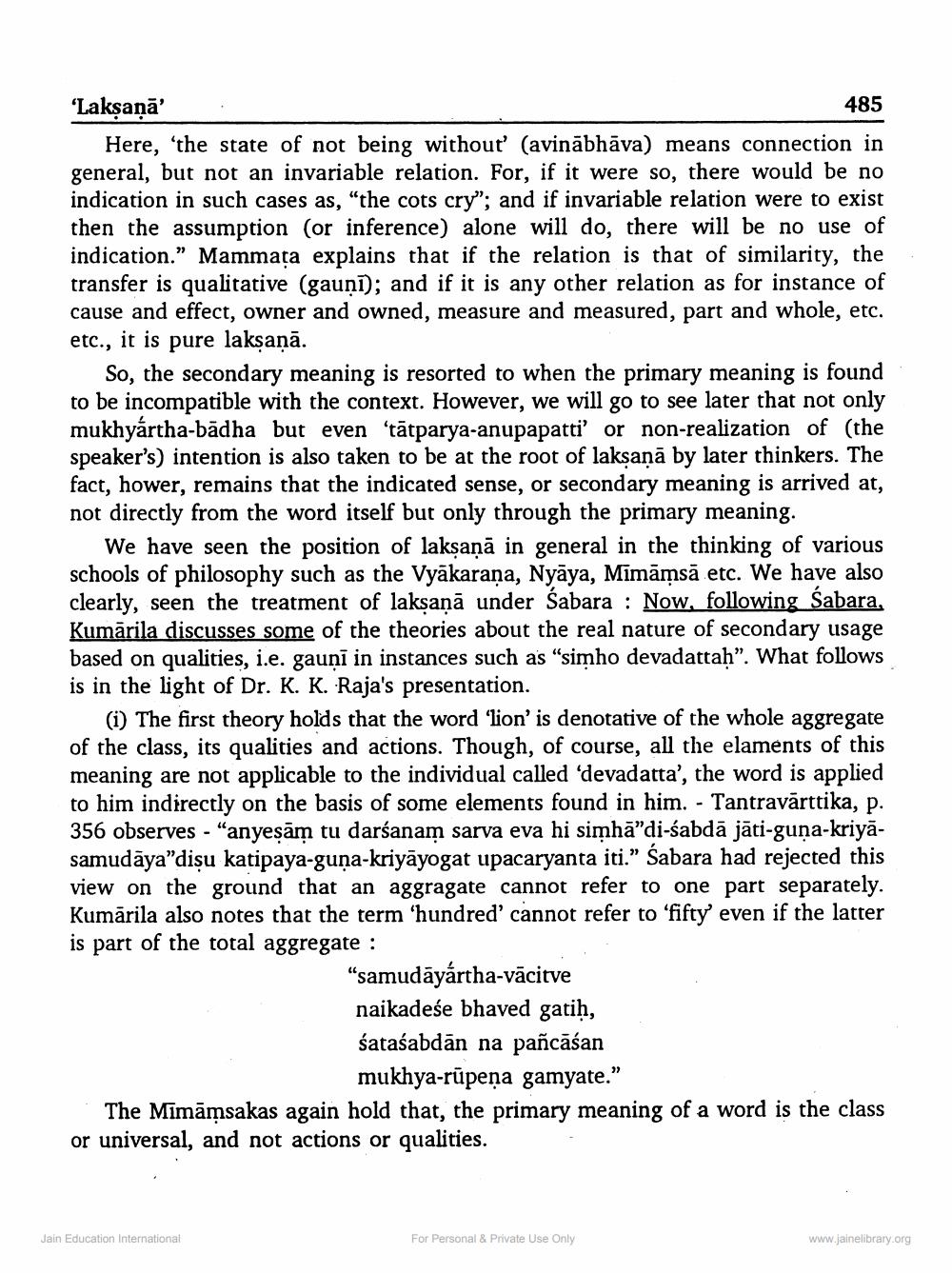________________
‘Lakşaņā
485 Here, 'the state of not being without' (avinābhāva) means connection in general, but not an invariable relation. For, if it were so, there would be no indication in such cases as, “the cots cry"; and if invariable relation were to exist then the assumption (or inference) alone will do, there will be no use of indication.” Mammara explains that if the relation is that of similarity, the transfer is qualitative (gaunī); and if it is any other relation as for instance of cause and effect, owner and owned, measure and measured, part and whole, etc. etc., it is pure laksaņā.
So, the secondary meaning is resorted to when the primary meaning is found to be incompatible with the context. However, we will go to see later that not only mukhyártha-bädha but even 'tātparya-anupapatti' or non-realization of the speaker's) intention is also taken to be at the root of laksanā by later thinkers. The fact, hower, remains that the indicated sense, or secondary meaning is arrived at, not directly from the word itself but only through the primary meaning.
We have seen the position of laksaņā in general in the thinking of various schools of philosophy such as the Vyakarana, Nyāya, Mimāmsā etc. We have also clearly, seen the treatment of laksanā under Sabara : Now, following Sabara, Kumārila discusses some of the theories about the real nature of secondary usage based on qualities, i.e. gauni in instances such as "simho devadattah". What follows is in the light of Dr. K. K. Raja's presentation.
(i) The first theory holds that the word 'lion' is denotative of the whole aggregate of the class, its qualities and actions. Though, of course, all the elaments of this meaning are not applicable to the individual called 'devadatta', the word is applied to him indirectly on the basis of some elements found in him. - Tantravārttika, p. 356 observes - "anyeşām tu darśanam sarva eva hi simhā"di-sabdā jāti-guna-kriyasamudāya”dişu katipaya-guna-kriyāyogat upacaryanta iti.” Sabara had rejected this view on the ground that an aggragate cannot refer to one part separately. Kumārila also notes that the term 'hundred' cannot refer to 'fifty' even if the latter is part of the total aggregate :
“samudāyártha-vācitve naikadeśe bhaved gatih, śataśabdān na pañcāśan
mukhya-rūpeṇa gamyate.” The Mimāmsakas again hold that, the primary meaning of a word is the class or universal, and not actions or qualities.
Jain Education International
For Personal & Private Use Only
www.jainelibrary.org




